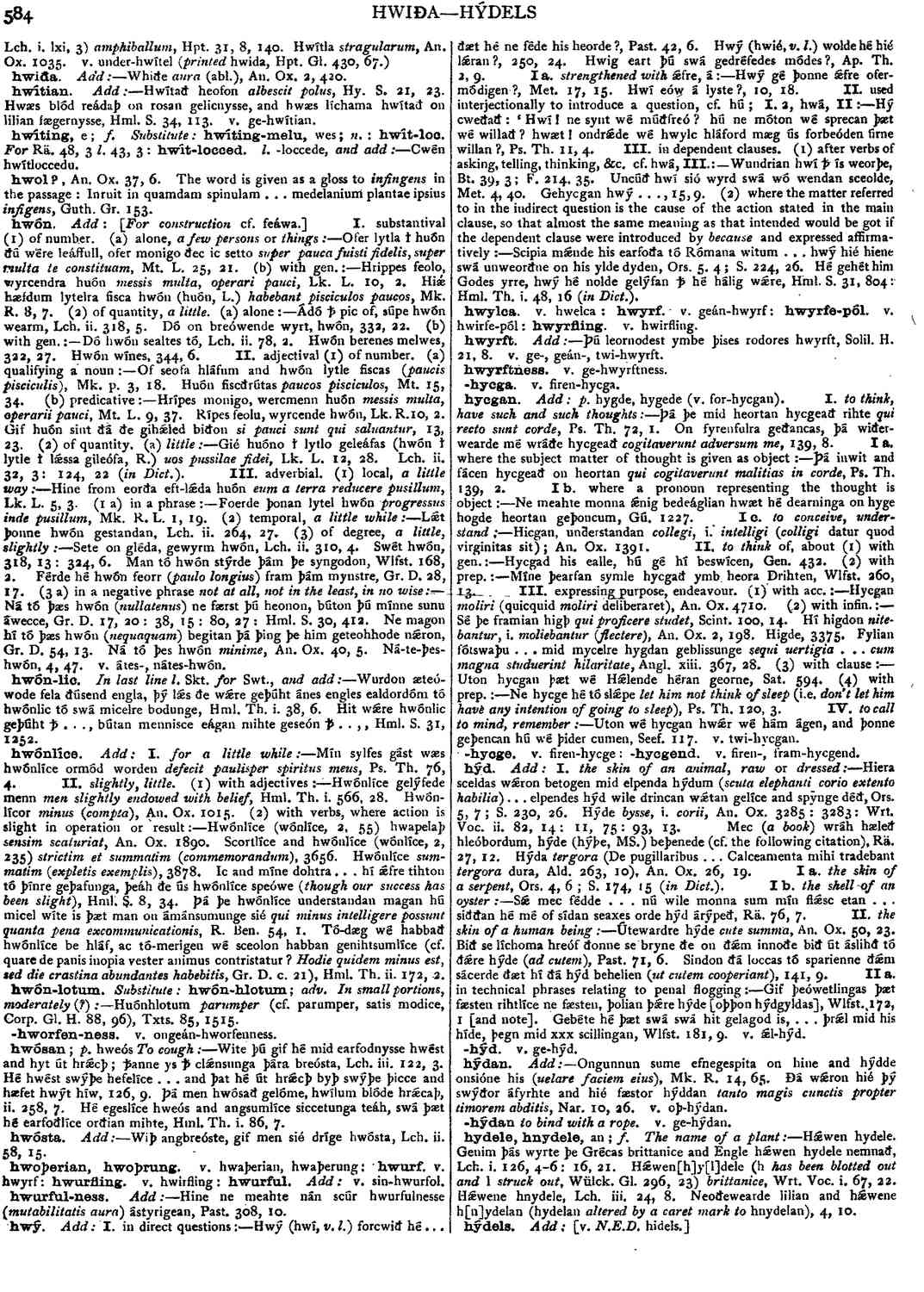hwý
-
Hwý (hwí,
v. l.
) forcwið hé . . . ðæt hé ne féde his heorde ?,- Past. 42, 6.
-
Hwý (hwié,
v. l.
) wolde hé hié lǽran ?,- 250, 24.
-
Hwig eart þú swá gedréfedes módes 1, Ap. Th. 2, 9. Ia.
strengthened with
ǽfre, á :-- Hwý gé þonne ǽfre ofer-módigen?,- Met. 17, 15.
-
Hwí eów? á lyste?,
- 10, 18.
-
Hý cweðað : 'Hwí! ne synt wé múðfreó ? hú ne móton wé sprecan þæt wé willað ? hwæt ! ondrǽde wé hwylc hláford mæg ús forbeóden firne willan ?,
- Ps. Th. ll, 4.
-
Wundrian hwí ꝥ is weorþe,
- Bt. 39, 3; F. 214; 35.
-
Uncúð hwí sió wyrd swá wó wendan sceolde,
- Met. 4, 40.
-
Gehycgan hwý . . . ,
- 15, 9.
-
Scipia mǽnde his earfoða tó Rómana witum . . . hwý hié hiene swá unweorðne on his ylde dyden,
- Ors. 5. 4 ; S. 224, 26.
-
Hé gehét him Godes yrre, hwý hé nolde gelýfan ꝥ hé hálig wǽre,
- Hml. S. 31, 804: Hml. Th. i. 48, 16 (in Dict.).
Bosworth, Joseph. “hwý.” In An Anglo-Saxon Dictionary Online, edited by Thomas Northcote Toller, Christ Sean, and Ondřej Tichy. Prague: Faculty of Arts, Charles University, 2014. https://bosworthtoller.com/53643.
Checked: 0